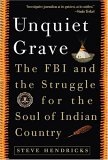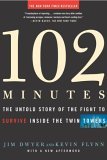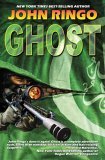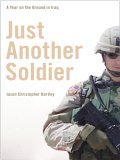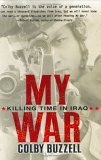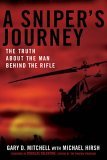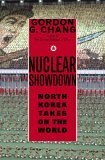
While Europe Slept: How Radical Islam is Destroying the West from Within, by Bruce Bawer.
[rating:5/5]
Bawer describes fast-growing Muslim communities throughout Europe that are basically isolated and closed off from European society. Muslims in France, Denmark, the Netherlands, haven’t been integrated into the countries they’ve emigrated into. They live in ghettos that are often beyond the control of local authorities. And they bring with them cultural norms from their old countries, like the lack of rights for women and honor killings, which violate the law of their adopted West European countries:
In London in 2003, a lively sixteen-year-old London girl named Heshu Yones- who’d fallen in love with a Lebanese Christian boy and planned to run away with him- was stabbed eleven times by her father, who then slit her throat. In a farewell note to her father, Heshu referred to the frequent beatings he’d given her:
Bye Dad, sorry I was so much trouble.
Me and you will probably never understand each other, but I’m sorry I wasn’t what you wanted, but there’s some things you can’t change.
Hey, for an older man you have a good strong punch and kick.
I hope you enjoyed testing your strength on me, it was fun being on the receiving end.
Well done.
The book definitely walks a fine line of being labeled a paranoid right-wing screed against foreigners invading these long-white countries. In many similar situations, people pointing out these kinds of situations and statistics have been labeled racist. The fact that Bawer is a gay man sometimes makes it seem okay, and sometimes you’re left wondering if you should be agreeing with his points.
Bawer details of the use of the host country’s welfare system by those looking to bring down the very western society that is supporting them:
After the 2005 terrorist attacks on London, it emerged that the four suspects had raked in more than half a million pounds in welfare benefits from the British government. The Telegraph reported, too, that Hizb ut-Tahrir founder Omar Bakri Muhammed (who preached that “we will conquer the White House… we will be in charge and Muslims will control the earth”) was getting “£331.28 a month in incapacity benefit and £183.30 a month in disability living allowance”; in addition, he collected a “housing benefit” and a “council tax benefit,” not to mention his wife’s welfare intake of “at least £1,300 a month.” (Curiously, no mention was made of child benefits for his seven progeny.) Even his car had been acquired free of charge under a government program.
Bawer talks of the European way of dealing with its growing Muslim population- appeasement:
“Muslims have a dream of living in an Islamic society,” declared a Danish Muslim leader in 2000. “This dream will surely be fulfilled in Denmark… We will eventually be a majority.” A T-shirt popular among young Muslims in Stockholm reads: “2030- when we take over.” In many places in Europe, agitation for the transfer of sovereignty has already begun. In France, a public official met with an imam at the edge of Roubaix’s Muslim district out of respect for his declaration of the neighborhood as Islamic territory to which she had no right of access. In Britain, imams have pressed the government to officially designate certain areas of Bradford as being under Muslim, not British law. In Denmark, Muslim leaders have sought the same kind of control over parts of Copenhagen. And in Belgium, Muslims living in the Brussels neighborhood of Sint-Jans-Molenbeek already view it not as part of Belgium but as an area under Islamic jurisdiction in which Belgians are not welcome.
And as the United States wages a war on terrorism, European distrust of US intentions leads them to often, in Bawer’s words, side with the terrorists:
Jordan wanted Mullah Krekar on drug-smuggling charges ( a year later, he and fourteen others were charged by Jordan with planning terrorist acts against United States and Israeli targets), and U.S. officials wanted to talk to him too. But the Dutch, frowning alike on Jordan’s indelicate treatment of suspected terrorists and on America’s death penalty, would not extradite him. Instead, they held him until January, then put him on a plane to Norway on the understanding that he would be arrested at the airport in Oslo. But Norwegian authorities- who shared their Dutch colleagues’ unwillingness to hand him over to either Jordan or the United States- allowed Krekar to walk free.
Coming in for some serious criticism from Bawer is France, who he repeatedly mentions had business dealings with Saddam Hussein’s government before the US removed him from power:
One might have thought this kidnapping would help Frenchmen see that all Western democracies were in this together; instead, the French government strove to get the message through to the hostage takers that in the war between Islamism and America, France was on the Islamists’ side. Le Monde applauded this spineless tactic. While pointing out thtat no democracy- not even France- was safe in the holy war that had begun on 9/11, the newspaper’s editors went on to celebrate (in typically frlowery French-editorial prose) the fact that the hostage taking, instead of exacerbating tensions between French Muslims and non-Muslims, had instead “caused of movement of national communion, almost of sacramental union.” Why? Because French Muslim leaders (who, practically speaking, could hardly have done otherwise) had unanimously denounced the nabbing of Malbrunot and Chesnot, expressed their loyalty to France, and sent envoys to Baghdad to help free the journalists. That’s it: all it takes for the French intelligentsia to wax poetic about “sacramental union” and about “the Muslims of France” being “the first in line to defend the Republic” is for French Islamic leaders to be willing to dissociate themselves from a patently barbaric act.
Looking to the future:
Over dinner, in response to Hedegaard’s dark view of Denmark’s future, Brix was more hopeful. The media would eventually come around; crisis would be averted. “You ahve to be a little patient,” she said. Not until the Eiffel Tower and the Tivoli in Copenhagen were blown up, she said, would the elite get it. hedegaard agreed. But then again, he said, the destruction of those landmarksmight have exactly the opposite result- the media might simply intensify its perverse cries of “Why do they hate us so much? What have we done to deserve this hatred?” the Wester European attitude, he observed, is that “of a repentant criminal”: too many Europeans are simply too willing to compromise their freedom. He mentioned a Danish firm with which he was familiar. It had recently taken on some new Muslim employees, and one of the longtime workers there had asked, in all seriousness: “When the Muslims start working here, can we still wear shorts in the summer?” Such readiness to adjust to Islamic norms- an attribute rooted in the fact that the reigning social ideal was not liberty but compromise- did not bode well for Denmark’s future.
One more, somewhat unrelated quote:
Jose’s language skills were in his blood. His father had been a journalist under Batista. When Castro and Guevara came to power, they arrested Jose’s father, tortured him, and put his eyes out. On the day I met him, in his modest ground-floor apartment, he sat in an upholstered chair in a book-lined room and spoke to me with a courtliness and respect to which I was not accustomed. Ever since then, every time I’ve seen a Che T-shirt on some clueless young person, I’ve thought of Jose’s father sitting in his living room, surrounded by books he could no longer read.
While Europe Slept: How Radical Islam is Destroying the West from Within, by Bruce Bawer.
[rating:5/5]
